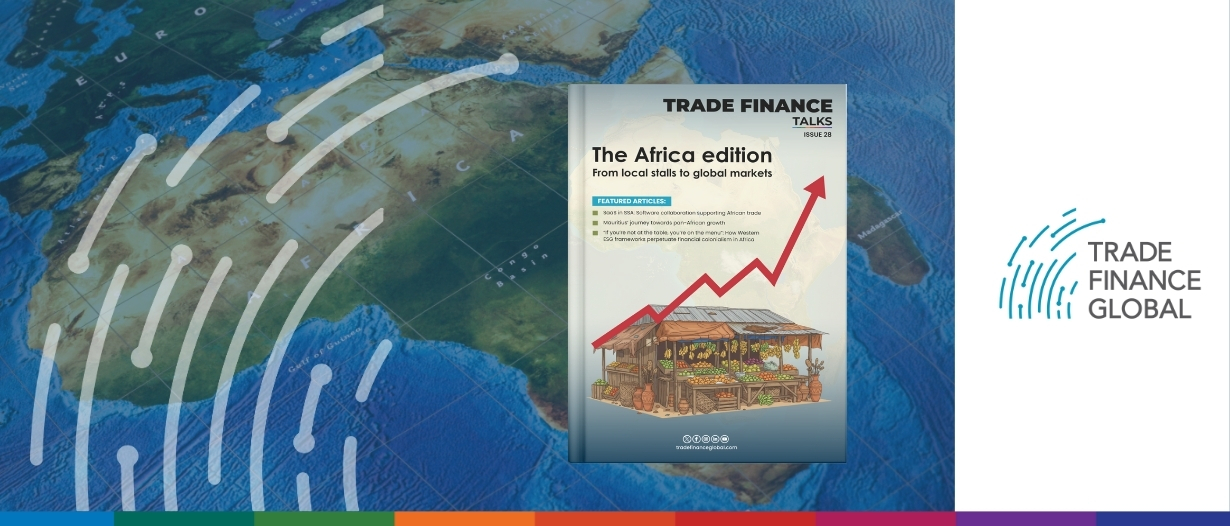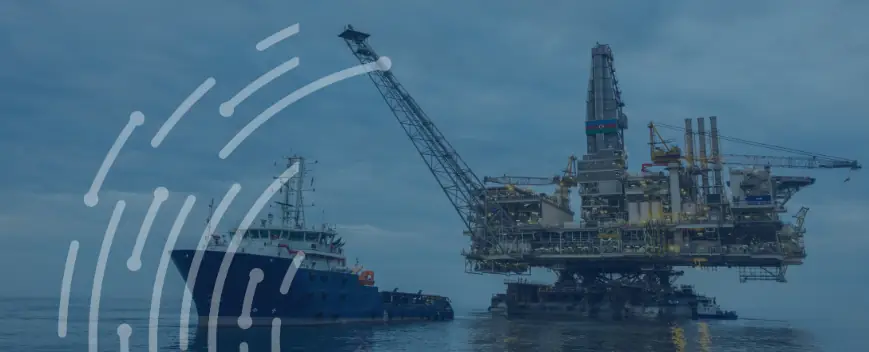Issue 28 of the Trade Finance Talks magazine is out now – and all the articles are about Africa.
The Trade Finance Global (TFG) team have had quite an international presence this year. And at all corners of the world, Africa has been the market on everyone’s lips and watchlists. This magazine, therefore, became an imperative for us.
Africa is the cradle of human civilisation, a continent whose contributions to global knowledge and innovation stretch back tens of thousands of years. Long before the European Renaissance, African societies were pioneering technological breakthroughs that would shape human progress. The Lebombo bone, discovered in the mountains of Swaziland and dating back approximately 43,000 years, stands as the oldest known mathematical object in human history.
African metallurgists were smelting iron in Nubia around 500 BCE, and by 100 AD, the Haya people of Tanzania had invented carbon steel, predating similar developments in Europe by more than a millennium. From the sophisticated astronomical observations of the Dogon people to glass manufacturing in 11th-century Ile-Ife, Africa’s intellectual legacy is profound and undeniable, particularly in terms of production.
Yet this narrative of innovation and achievement was systematically obscured by the violence of the transatlantic slave trade and subsequent colonial exploitation. As European powers carved up the continent at the Berlin Conference of 1884-85, Africa was reimagined not as humanity’s birthplace or a centre of civilisation, but as a reservoir of resources to be extracted and people to be enslaved. This perception – of Africa as a place to take from rather than trade with – became entrenched in the Western imagination and, more damagingly, in the economic structures that governed global commerce.
Colonial powers built railways not to connect African communities but to transport minerals from mines to ports. They established monoculture agricultural systems designed to feed European markets, not local populations. The financial architecture erected during this period (banking systems, trade agreements, commodity markets) was explicitly designed to facilitate extraction.
Independence movements across the continent in the mid-20th century promised a new beginning, but the extractive relationship proved remarkably resilient. Former colonial powers maintained influence through debt, structural adjustment programmes, and the perpetuation of economic models that continued to prioritise raw material exports over value-added production.
Beyond economic extraction, the physical dumping of waste onto African soil epitomises the continuation of exploitative practices well into recent decades. The 2006 Trafigura toxic waste scandal in Côte d’Ivoire, where over 500 tonnes of hazardous waste were dumped across 18 sites in Abidjan, resulted in at least 15 deaths and more than 100,000 people seeking medical treatment. The Dutch commodity trading company chose to dispose of waste in Africa rather than pay the €500,000 it would have cost in the Netherlands – a calculation that valued African lives at a fraction of European regulatory compliance, which is not an isolated sentiment, but a brutal microcosm of the wider sentiment.
However, to dwell exclusively on this history of exploitation is to deny the agency, dynamism, and sophistication of contemporary African businesses, financial institutions, and entrepreneurs. Today’s African business leaders are not passive recipients of foreign aid or victims waiting for rescue. The articles in this magazine tell the story of innovators in creating robust trade networks with technology as a foundation, not an augmentation.
Continental integration through the African Continental Free Trade Area (AfCFTA) is creating the world’s largest free trade zone by number of countries; where homegrown fintech solutions are solving financial inclusion challenges with greater creativity than their Western counterparts; where banks are establishing correspondent relationships and clearing facilities that reduce dependence on foreign intermediaries; and where African institutions are setting their own stawrite a meta descriptionndards rather than simply conforming to externally imposed frameworks that often perpetuate old power dynamics under new guises.
—
The articles collected in this edition of the magazine map the complex terrain of contemporary African trade and finance, revealing both the persistent challenges rooted in historical inequities and the innovative solutions emerging from African institutions themselves.
Our opening section, ‘All roads lead to Africa’, examines the shifting geopolitical landscape of African investment and trade. We investigate how Asian powers are approaching Africa differently from historical Western engagement and adopting strategies related to domestic priorities. The Belt and Road Initiative represents the largest infrastructure investment programme on the continent in generations, but what are its terms?
An analysis of environmental, social, and governance (ESG) frameworks reveals how ostensibly progressive financial standards can inadvertently perpetuate ‘financial colonialism’, since when you’re excluded from setting the rules, you remain “on the menu” rather than at the negotiating table. We also explore India-Africa trade dynamics in an era of rising protectionism, examine commodity risk management in sub-Saharan African markets, consider whether continental banking infrastructure can match the ambitions of the African Continental Free Trade Area (AfCFTA), and confront the newest chapter in the murky story of the relationship between commodity trading and conflict – specifically, the ongoing war in Sudan.
The second section, ‘Improving accessibility,’ focuses on the persistent barriers to trade finance in Africa and the efforts to overcome them. The trade finance gap in Africa continues to widen, leaving countless businesses – particularly small and medium-sized enterprises (SMEs) – unable to access the capital they need to participate in regional and global commerce. Financial institutions, development banks, and regulators have been coming together to improve access to finance on the continent, and this chapter sheds light on how.
Our final section, ‘Digital developments’, explores how technology is transforming African trade from the innate receptiveness and innovative spirit with which African businesses approach new solutions. From Software-as-a-Service platforms to fintechs in Nigeria, from data reliability to payment systems infrastructure, we have found that weaknesses in setting off on the wrong foot can easily be turned into opportunities. That is to say, African businesses have leapfrogged a stage of technological development and are quickly becoming peers to their European or Western counterparts.
Africa exists beyond the headlines of crisis and charity. An Africa of bankers structuring complex deals, entrepreneurs building regional supply chains, technologists solving infrastructure challenges, and policymakers negotiating the terms of engagement with the global economy is the continent we have been seeing in conferences and media alike. We are excited to convey this picture in Issue 28, our Africa edition. Enjoy!





























